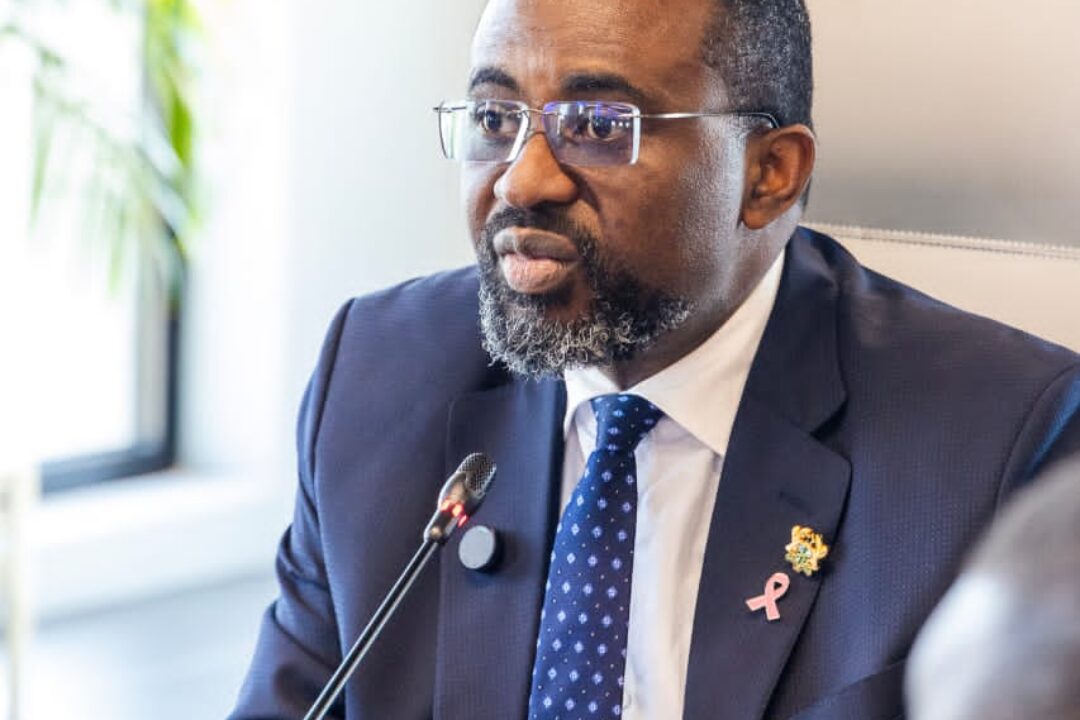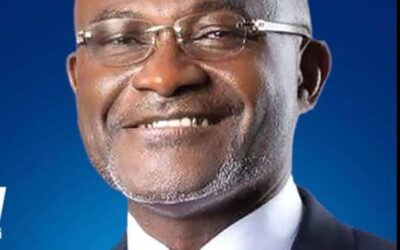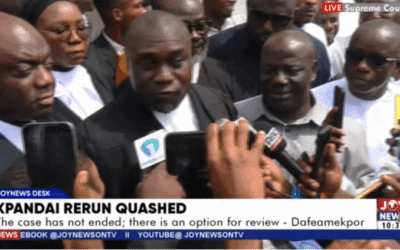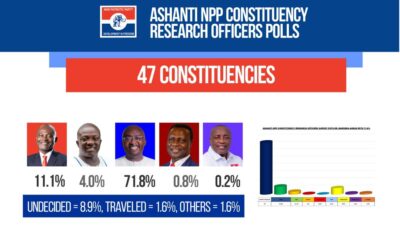127TH MONETARY POLICY COMMITTEE MEETINGS
OPENING REMARKS BY
DR. JOHNSON PANDIT ASIAMA,GOVERNOR, BANK OF GHANA


Colleagues, good morning
As we gather for the 127th session of the Monetary Policy Committee, the data before us paints a very different picture from where Ghana stood barely a year ago.
The economy has turned a decisive corner. Inflation is not only back within the target band but has eased faster than anticipated.
The exchange rate has remained broadly stable. External buffers are strong. And, perhaps most encouraging the real sector is showing signs of sustained revival.


The staff briefing confirms that the initial conditions for this meeting are the strongest we have had in several years.
Headline inflation is at 8.0 percent, core inflation measures are between 5–7 percent, and expectations remain anchored.
The cedi has demonstrated resilience in 2025, supported by improved confidence, strong operational reforms in the FX market, and robust trade and reserve inflows.

DR. JOHNSON PANDIT ASIAMA,GOVERNOR
Gross reserves have risen to US$11.41 billion, equivalent to 4.8 months of import cover, and are projected to reach 5 months by year-end.
What stands out this quarter is the broad momentum in economic activity. Growth has been stronger and more diversified than anticipated.
The first half of the year recorded 6.3 percent GDP growth, driven by vibrant expansion in services and agriculture, while non-oil GDP surged to 7.8 percent.
High-frequency indicators echo this trend: the Composite Index of Economic Activity is up about 9 percent, and business and consumer sentiments remain firmly positive.

Taken together, these gains confirm that the negative output gap is narrowing, and the economy is gradually shifting from recovery to expansion.
But the turnaround is not accidental. It reflects sustained fiscal discipline, a cautious but determined monetary stance, and structural policy reforms, particularly the improvements in the FX operations framework and the rebuilding of external buffers.
The 2026 Budget reinforces this discipline and places growth and job creation at the centre of Ghana’s next phase of economic transformation.
Looking ahead, the growth outlook remains favourable. Staff projections, supported by recent real-sector indicators, suggest that the economy will maintain a steady expansion path through 2026.
The strong harvest season, improved food supply dynamics, enhanced FX liquidity, and the easing credit environment all provide support for continued growth. Non-oil sectors, services, industry, and agriculture are expected to remain the key drivers.
The broader macro-framework also supports this trajectory. Money supply growth has moderated significantly, helping anchor inflation. Real rates remain high, creating room for a carefully calibrated easing cycle. And with inflation likely to settle between 4–6 percent by year-end before stabilising around the target band in 2026, Ghana is entering what could become a multi-year period of price stability.
At the same time, the global environment remains fragile, and we must remain alert to risks, commodity price swings, geopolitical tensions, and tighter external financial conditions. Domestically, pressures around taxes, utilities, and costs of credit continue to weigh on business activity, even amid improved optimism.
For today’s deliberations, there are three areas that deserve our most careful attention:
- The Pace of Disinflation and the Real Interest Rate Path
As inflation declines faster than projected, real interest rates have risen sharply. Staff analysis shows scope for gradual easing, but the balance must preserve credibility and avoid undermining the disinflation gains.
- The FX Market Reforms and Reserve Strategy
While the new FX operations framework has improved transparency and market functioning, staff have highlighted the need to educate the public, and to diversify reserve assets to limit concentration risks, particularly around gold holdings. -
Financial Sector Stability and Credit Transmission
.
The banking sector remains sound, but asset quality and recapitalisation risks for a few institutions must be addressed.
A healthy credit channel is essential to sustaining the emerging growth momentum.
Colleagues, Ghana’s macroeconomic path is stabilising, and the foundations for sustained growth are strengthening. The task before us is to protect this stability while supporting the real sector’s recovery. Our decisions today must reinforce confidence, signal predictability, and keep the economy on its path toward higher, job-rich growth.
I look forward to your perspectives as we examine the data more closely and agree on the policy stance that best balances these priorities.
Thank you.



















